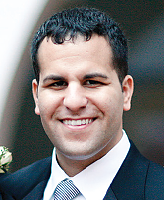How to Optimize Supervision of Psychodynamic Therapy

The process of psychotherapy supervision can lead to or exacerbate a great deal of anxiety in a psychiatry resident. Unfortunately, residents are often poorly prepared to use supervision effectively to develop their understanding of technique, treatment principles, transference and countertransference difficulties, and parallel process.
But there are ways in which the supervisee can feel more confident about his or her capacity to learn from supervisors who may have different teaching styles and theoretical orientations. I have been fortunate to have supervisors who were patient, yet challenging, with me. They inspired me to work with my patients more deeply in their search for overall health, growth, and fulfilling relationships. Like many of my fellow residents, I continue to learn much about myself in the process.
One of the biggest barriers to my own learning, at times, was not being aware of my defensiveness to feedback. Defensiveness, even if it is subtle, can be displayed verbally and nonverbally. Becoming more aware of my body language, facial expressions, tone, and engagement with supervisors has helped me facilitate the learning process. Often, when a supervisor would point out that a technique or intervention was not helpful with a patient, I would feel shame or inadequacy. When accepting constructive and/or negative feedback from supervisors, I found it helpful to remind myself about the concept of mindfulness as described by Marcia Linehan, who defines it as “paying attention, in a particular way, on purpose, to just the current moment, nonjudgmentally.” The Zen concept of Beginner’s Mind, which is to remain humble and suspend judgment while learning from the supervisor, can allow us to grow and experience new possibilities. Maintaining openness, curiosity, flexibility, and the process of involved listening is paramount. Ideally, a willingness to share mistakes, problems, thoughts, and feelings can lead to a deeper learning experience in supervision.
Preparedness is also a crucial issue. You should be ready to discuss how the patient makes you feel during the course of the therapy session. These observations may be a window into what other people feel when they come into contact with the patient. Using yourself as a tool and appreciating the importance of transference and countertransference is a way to help analyze what stems from the therapist and what is the patient’s pathology. It also helps to note what the patient says or does that reminds you of your own experiences. While it may not be feasible to write “process notes,” it can be very helpful to review the audio/videotape of the session prior to your supervision.
Fortunately, my residency program requires residents to videotape psychotherapy sessions, and this has been invaluable to the supervision process. I find it very helpful to try to write down major topics and themes that emerged in the session and the thoughts and emotions they elicited. Observing and noting your own physical sensations and reactions during the session can provide insight as you gain a greater understanding of the patient. I have also realized that it helps to think about how the most recent session impacts my developing conceptualization of the patient and his or her problems.
I have also learned the utility of undergoing personal psychodynamic psychotherapy. This experience, while arduous at times, has helped me with my personal relationships and my supervisors. My therapy allowed me to gain more empathy for my patients who are going through a similar experience. I am much more self-reflective as a result of my personal therapy and feel that my patients benefit from a richer psychotherapeutic experience. It is a truly valuable training opportunity to model oneself on an experienced clinician.
“Parallel process” is a behavior or interaction in the supervision that is similar to a behavior or interaction in the therapy. Parallel process should be explored when a problem arises in supervision or therapy. Based on my experience, I believe that residents should aim to observe this phenomenon, feel comfortable discussing it in supervision, and use it to enrich their learning experience. Impasses that arise between supervisor and trainee should be worked out, understood, and ultimately resolved together. I don’t think anything can be gained by the resident detaching from the dyadic relationship with the supervisor.
Finally, I want to suggest several books that have helped me feel more confident as I immerse myself in psychotherapy with patients and in supervision sessions. Among these are Psychoanalytic Psychotherapy: A Practitioner’s Guide by Nancy McWilliams; Learning Supportive Psychotherapy: An Illustrated Guide (Core Competencies in Psychotherapy) by Arnold Winston, et al.; and Psychodynamic Psychiatry in Clinical Practice by Glen Gabbard. 
Michael Ascher, M.D., is a PGY-4 psychiatry resident at Beth Israel Medical Center and a candidate in the postdoctoral program in psychotherapy and psychoanalysis at New York University. He is a Sol W. Ginsburg Fellow in the Group for the Advancement of Psychiatry.



